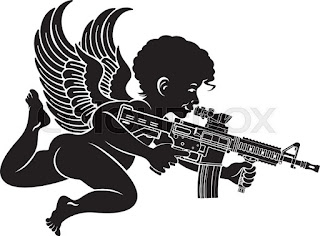[Sherlock Holmes said,] “It is my belief, Watson, founded upon my experience, that the lowest and vilest alleys in London do not present a more dreadful record of sin than does the smiling and beautiful countryside.”
“You horrify me!”
“But the reason is very obvious. The pressure of public opinion can do in the town what the law cannot accomplish. There is no lane so vile that the scream of a tortured child, or the thud of a drunkard’s blow, does not beget sympathy and indignation among the neighbours, and then the whole machinery of justice is ever so close that a word of complaint can set it going, and there is but a step between the crime and the dock. But look at these lonely houses, each in its own fields, filled for the most part with poor ignorant folk who know little of the law. Think of the deeds of hellish cruelty, the hidden wickedness which may go on, year in, year out, in such places, and none the wiser."
— Arthur Conan Doyle, The Adventure of the Copper Beeches
Living in South Dakota, and most of that time in a small town, I agree with Holmes' assessment 100%.
I've related in many a blog the ins and outs of various government corruption and malfeasance, from EB-5 to Gear Up! to the death of Joe Boever, and more.
I've also sat in a courtroom and watched as a grandfather, convicted of molesting all four of his grandchildren, was given a slap on the wrist from a judge because the man "had an unblemished record."
And then there's the petty stuff: small towns where "everyone takes care of each other", so they don't have to enforce the rules. With predictable results: people don't shovel their sidewalks unless they feel like it, a noted person (with money) was allowed to turn numerous private properties into private junkyards, and the memorable time when one man threatened to shoot anyone that set foot on his property. And then complained because the volunteer fire department watched his house burn down.
BTW, there's no feud like a small town feud, unless it's a small town church feud.
Back on January 13, 2019, in my post "What We're Best at Being Bad At", I said that South Dakota was really good at embezzlement. And we are. To quote myself:
"Besides grifting on the state level, there's also one heck of a lot of small potatoes embezzlement here in South Dakota, much of it fueled by gambling addiction and/or medical bills. $500 from the local VFW; $1,500 from a doctor's office; $2,500 from a nursing home. Interestingly, other than the public humiliation, the punishment is usually a slap on the wrist: the main penalty is to pay the money back and do community service. Rarely is there any jail time. Perhaps that's why it's so common…
But sometimes it's bigger: Just recently, up in Kingsbury County a family-run grain elevator has gone bankrupt because the family was hedging commodities and lost as much as $15 million of other people's money." (HERE)
At the time I didn't go into details, because so much of it was "gossip". Well, it's now two years later, and "Jared Steffensen of the Arlington, S.D., area, pleaded guilty to theft by deception in his H&I Grain Inc. business, at a June 29, 2021, hearing at the Beadle County, S.D, courthouse at Huron. He speculated on grain trades, and then failed to pay millions to farmers. He and his wife, Tami, could face five years in the state penitentiary. His mother, JoAnn also pleaded guilty to a felony of failing to inform state regulators that her company was failing financially." (AG Week)
Former H&I Grain Inc. site at Hetland, S.D, original location for a family business that ran into legal trouble when Jared Steffensen of Arlington, S.D, accelerated speculation in grain trades, costing ~32 farmers and companies millions of dollars.
Photo taken May 6, 2019, Hetland, S.D. Mikkel Pates © Agweek
Citing“criminal mentality” (for one thing, the scam went on for months) and “lack of remorse,” Circuit Judge Kent A. Shelton sentenced Jared and Tami Steffensen each to terms of five years in state prisons and made them liable for restitution of $4,966,491.80 to farmers, as well as other costs. And had them marched out of the courtroom, in handcuffs, back to jail. (Ag Week)
But the neighbors know, in the words of Greg Albrecht, whose family lost more than a million dollars, "We're never going to see nothing out of it." And they probably won't.
And that's not the worst scam:
On November 4, 2021, Robert "Bob" Blom, a feedlot operator in Corsica, South Dakota (pop. 592) was sentenced to 91 months in prison after pleading guilty to a Ponzi scheme. Basically, he ran a custom cattle feeding operation in which he resold cattle he didn't have in inventory to investors, falsified invoices and used the money to pay back old investors.
He owes $24,282,865.94 to people he conned – life-long neighbors, who definitely feel that he's getting way too little for his crimes. "Was there any plea bargaining for me?" asked Rod Myer, a cattle feeder that worked with Blom for 14 years and was a victim in the case. "I hear a lot in the courtroom today on how Bob felt. Well, how do you think I felt?… There goes my life savings." (Argus)
That's TWO multi-million dollar peculations occurring in TWO rural counties in South Dakota.
Now here's the deal: if you live in Corsica, SD (pop. 592), in Douglas County (pop. 2,835), or if you live in Hetland, SD (pop. 46) in Kingsbury County (pop. 5,187), you know just about everyone in the entire county. You went to school with them, to church with them, etc. You've known them all your lives. You trust them. "A man's word is his bond" is a common saying. A handshake could seal major contracts. And suddenly, one family in each of these counties, in absolute cold-blood, screwed everyone - life-long friends and neighbors – out of their life savings.
It's not even the money, as much as that hurts. As Jeff Hampton, a friend of Blom’s for over 50 years, said, "Bob should never see the light of freedom again — those are hard words coming from a friend.” Then he turned to Blom. “You’ve destroyed the trustworthiness of a man’s word.” (Ag Week) And he only got 7.5 years in prison.
Let's put it in perspective:
In South Dakota, you get drunk and kill someone in a bar-brawl, you can - and many do - get life without parole for 1st Degree Manslaughter. If you hit and kill someone while driving drunk, at least 10 years. (Does not apply to state officials driving late at night on rural roads who run into deer with glasses. They get misdemeanors. And complain about that.) One recent case involved 4 young men who were all charged in the shooting death of a man named Jordan LeBeau. The actual shooter got 40 years, but Kevin Rice got 60 years - not for shooting the victim - but for not stopping the shooting. (Argus)
Meanwhile, financial crimes get a slap on the wrist. 5 years. 7.5 years. You have to be Bernie Madoff to get a life sentence. Otherwise... Well, all those people shouldn't have trusted them, right? We'll set up a payment plan. And - sort of related - Smithfield Foods in Sioux Falls recently finally admitted to not doing enough to stop Covid back in the beginning, when 1,294 workers got Covid and 4 died - and paid a fine of $13,000. This is around $10 a survivor OR $3,250 per death, which tells you how much a meat-packing plant worker's life is worth.
Watch your backs, folks. There is no Eden, and even in Eden there was a snake. Why not in South Dakota, where we talk like Mayberry, and act like Goodfellas? God, I wish I was joking.



 by Fran Rizer
by Fran Rizer







